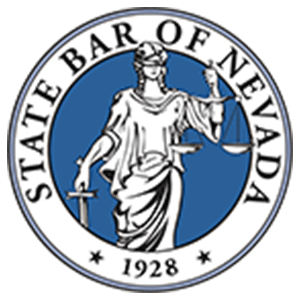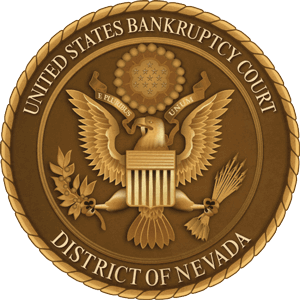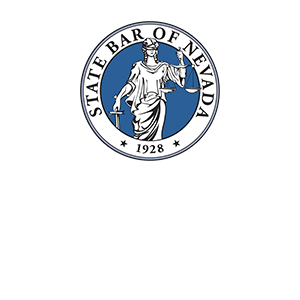Most of the time, solving Business debt isn’t significantly different than any other kind of debt.
From a lawyer’s perspective, someone must understand the nature of a business debt to solve them. While in many ways, solving problems with business debts is similar to working with any other debt. Business owners may need help understanding business debt’s complex and highly technical legal nature. Having this knowledge is crucial. For example, business owners may assume that only the business owes the business debt, and business debts can easily be eliminated through Bankruptcy. Or they may believe that a lawsuit against the business won’t affect them and that they can merely create another business structure and move on. However, most of the time, these assumptions are false.
It is always possible to settle a business debt. However, these debts are often much larger than consumer debts, so settling is often more expensive and, therefore, less advantageous.
While it may be possible to eliminate certain business debts in a personal Chapter 7 Bankruptcy, not all debts are treated equally. Debts for taxes, financing business purchases, or problem debts obtained by submitting false information about the business’s financial situation can pose serious challenges to eliminating those debts. Understanding these potential consequences is crucial in managing your business debt and making informed decisions.
Furthermore, to borrow money, the business owner or their family must often personally guarantee the debt or pledge valuable collateral, such as real estate or the business’s merchant service account, to obtain financing.
After COVID struck, many businesses faced financial hardships that hadn’t been seen in decades. Congress authorized emergency Small Business Administration (SBA) loans to help the economy, and many businesses applied for these loans. Others who could not get SBA loans turned to more ‘high-risk” options like merchant cash advance (MCA) loans.
However, both of these options were risky. Understanding the nature of each type of loan is important to understanding these risks.
The SBA is part of the US government. These loans were intended to help businesses with their everyday operational expenses, equipment, and employee salaries. Failing to use the money properly AND not paying back the SBA loan can open the individual to a claim of fraud or other criminal charges. In these situations, individuals may face investigation by the FBI or other US Department of Justice branches. These business owners can face criminal charges and even imprisonment if found guilty of fraud.
Although Bankruptcy might be a viable solution for some business owners, they must be ready to have their financial records scrutinized, even if they did everything correctly. A knowledgeable bankruptcy attorney must review the records to determine if the individual business owners face risks that may make Bankruptcy a poor option.
MCA loans allow a business to receive a lump sum loan in exchange for a paying percentage of the business’s future receivables through credit and debit card sales. These loans generally come with a very high interest rate. Additionally, unlike consumer debt, MCAs are not regulated. For example, unlike credit card debt, MCA providers do not have to follow the Fair Debt Collection Practices Act (FDCPA), which regulates lenders’ actions to collect.
When a business owner decides to pursue an MCA, they open themselves and their business to the questionable ethics of their MCA lender. Typically, their MCA agreements give the MCA lender full access to their business bank accounts. Additionally, the business owners and anyone who signs the agreement personally guarantee the loan. When business owners fail to adhere to the repayment schedule on these cash advances, they face possible repercussions such as having UCC liens filed against their vendor, business, and even personal bank accounts. A business owner can wake up one morning to find their business and personal bank accounts frozen.
Additionally, business owners who default on these cash advances may find their vendors and credit card processors withhold funds due to these UCC liens. Finally, MCA providers are notoriously litigious. A business owner must be prepared for a lawsuit if they default on the loan agreement. time. Further. as the business owner always personally guarantees an MCA loan, any problems with one loan can lead to other debts spiraling out of control.
While business owners face many possible obstacles in dealing with business debt, understanding the benefits, responsibilities, and repercussions of taking on these loans is crucial to avoiding their many pitfalls. To do this, business owners must educate themselves or seek counsel from those they trust with this knowledge.
At Las Vegas Debt Settlement, our legal team can resolve all types of debt, including business debts. Because we have experience handling all types of debt, we can offer multiple options to resolve the problem with business debt.
Business owners have several options to satisfy their business debts. Some are more favorable than others, depending on the circumstances. Sometimes, it is necessary to try more than one option or two options at the same time. Having the experience, knowledge, and legal backing of a reputable attorney during this process is vital in navigating the complexities of business debt.
At Las Vegas Debt Settlement, we stand ready to assist, guide, and advise you regarding your business debt issues.
Remember, expert advice is not just helpful; it’s vitally important. Professional advice about resolving business debt is essential in navigating its complexities. At Las Vegas Debt Settlement, our experienced attorney is ready to provide the guidance you need, giving you the reassurance and confidence to manage your business debt effectively.
You do need expert advice before deciding how to proceed. And at Las Vegas Debt Settlement, our experienced attorney can provide the answers you need.
Immediately Stop Creditors from Calling or Texting You!




